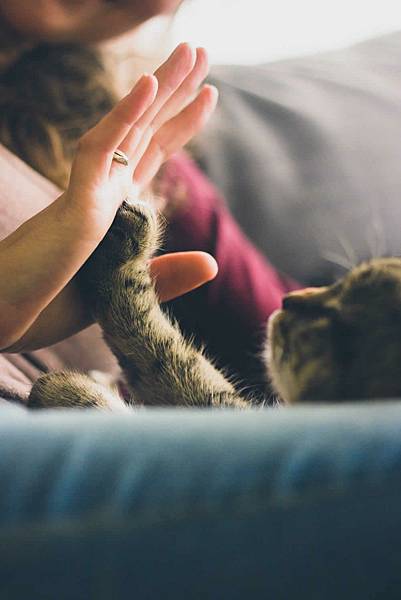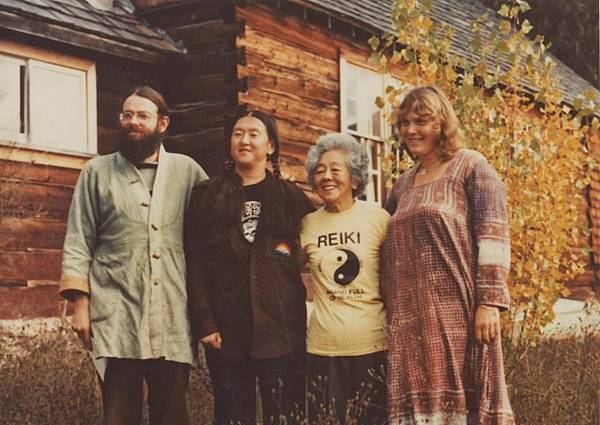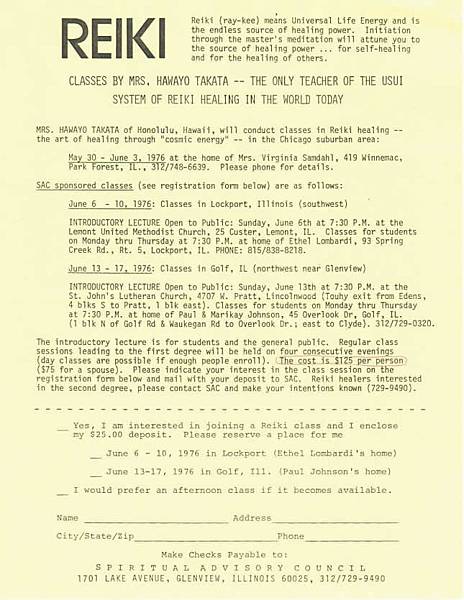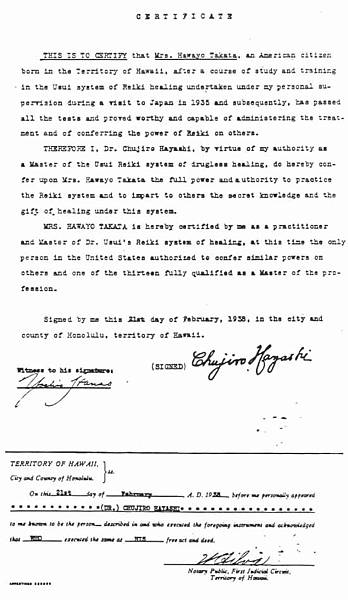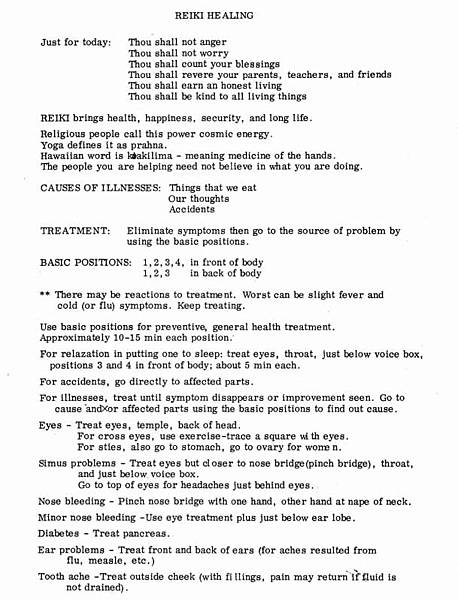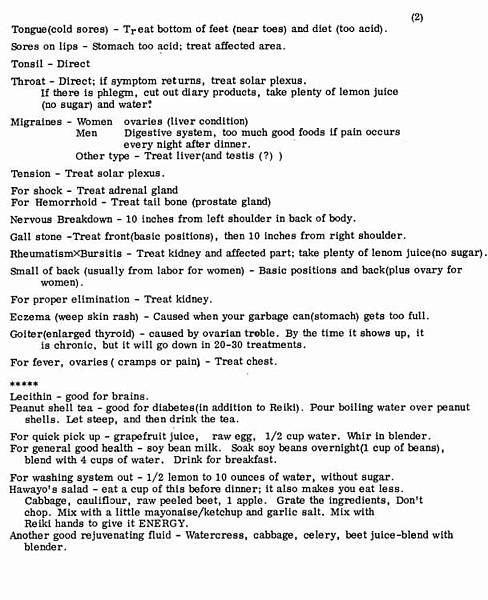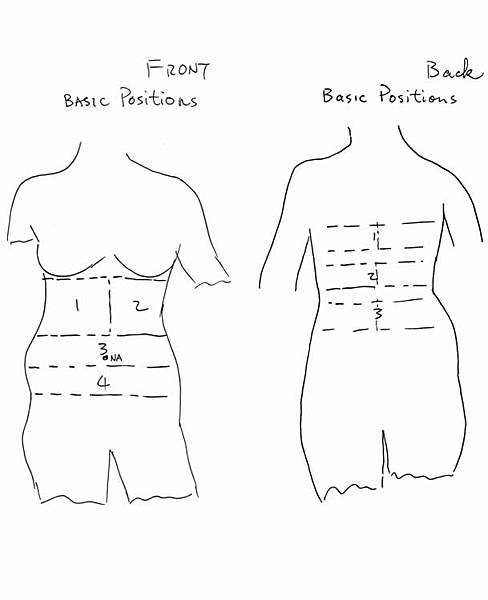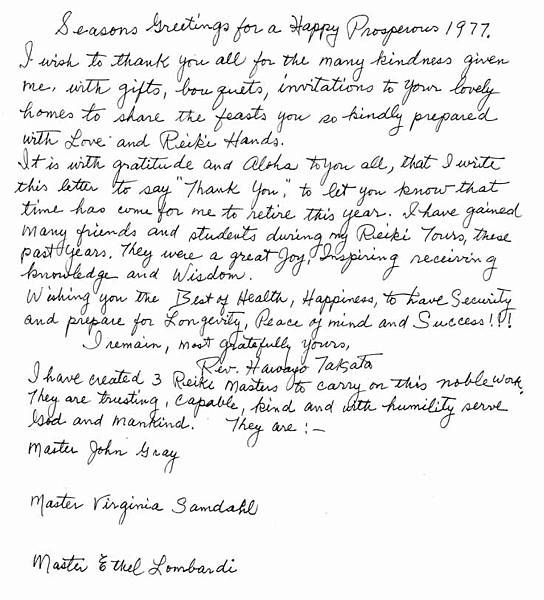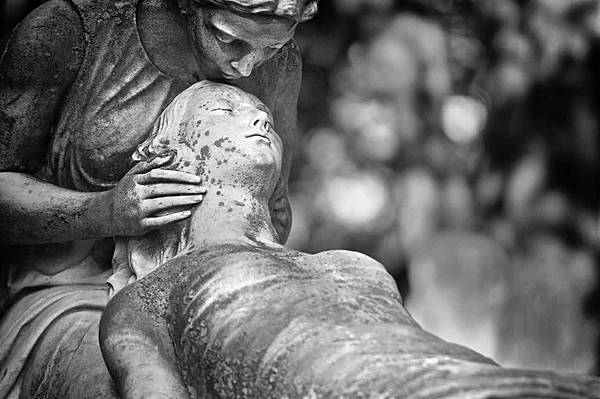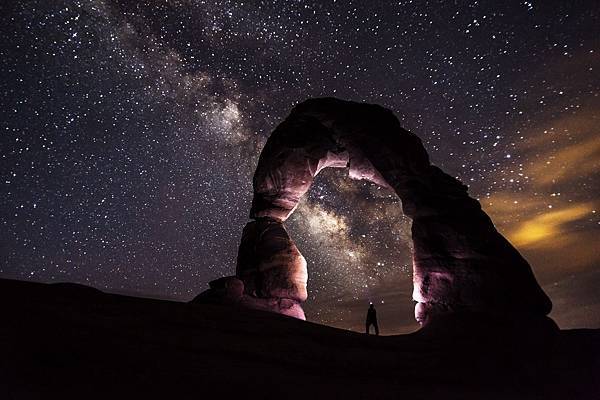
土居裕老師的專訪(上) Interview With Hiroshi Doi Sensei
居住在日本蘆屋市的現代靈氣法(Gendai Reiki Ho)大師-土居裕(Hiroshi Doi) 是臼井靈氣療法的權威。因為他擁有臼井靈氣療法學會的會員資格使他處於非常獨特的地位,他擁有關臼井老師創立靈氣與治療實踐的相關信息。該學會是由臼井老師創立的原始靈氣組織,直到 1975 年該組織的前四位會長都親自接受了臼井老師的靈氣訓練。 土居裕老師接觸到學會的 神祕傳 等級成員,包括最近代的兩位會長以及對學會相關檔案的查訪,也為他提供了真實的歷史訊息來源。他對靈氣的奉獻以及研究和保存其實踐的相關歷史事實使他成為靈氣社群的寶貴資源。他還開發了一種名為現代靈氣法的靈氣系統,並撰寫了一本名為 療癒的靈氣法-現代靈氣法( Iyashino Gendai Reiki Ho, A Modern Reiki Method of Healing) 的書。這本書於 1998 年在日本首次出版,2000 年在加拿大出版,但已絕版近 10 年。現在,最近發布了修訂版。這次採訪將重點放於這本書,尤其是其中包含的新信息。這是兩部分採訪的第一部分。本次採訪的答案由 Fumi Koji 自日語翻譯而來。
WLR:療癒的現代靈氣法- 的修訂版包含了對於靈氣治療很重要的附加信息以及更動的翻譯,使英語系的人們能更容易理解您表達的深奧概念,您能描述一下修訂版包含的一些附加資訊嗎?
HDS:本書於 2008 年 3 月日文版的第一版本發布,然後在 10 年後進行了修訂。 但這個英文的修訂版不僅僅是原作的翻譯。本次英文的譯者也是現代靈氣法的大師,並對其進行了徹底的檢查,並提出了更新訊息的附註,且與我相互確認了這一點。 然後,我們和你(威廉)一起重新回顧檢視了這些重要的概念,我們知道你作為一個擁有 世界觀與20多年經驗的靈氣大師,你將能夠幫助我們讓這些訊息以更容易被西方人理解的形式表達出來。
通過這種詳盡的編寫過程,本書以健康和幸福為目的,更好地傳達了關於臼井靈氣療法的事實,並更好地解釋了現代靈氣法,這是一個更適合21世紀人們生活的系統。
這個修訂版包含了一些我以前沒有向大眾提供的資料,因為在早期這些資料會被認為過於聳人聽聞。 然而,現在正是發布這些資料的時候。 例如,在這本書中,您將閱讀到 傳統靈氣(臼井老師親自教授的靈氣)沒有第四個符號(Master Symbol)也沒有任何 言靈(Kotodama)的事實,以及神祕傳等級的一些要求 自學會的第二任會長以來,臼井老師時代神祕傳等級的學生發生了翻天覆地的變化。
總體來說,這本書盡可能簡單地解釋了我 20 多年的靈氣練習和教授中變得所釐清的內容。 透過 Fumi Koji 和你(威廉)的翻譯,巧妙地實現並整理了我內心巨大檔案庫並繪製出了精確的觀點。
WLR:在修訂版中,您解釋說臼井靈氣的整個治療系統是由臼井老師在初傳和奧傳級是分別教授的,並且偶爾會教一些奧傳的學生如何給予 靈授(attunements) 並將其提供給學生。 你能解釋一下這是怎麼一回事嗎?
HDS:整個靈氣有關於治療的課程都是在學會的 初傳 和 奧傳 教授的。 會員獲得奧傳後期(奧傳的後半部)時,即視為完成了臼井靈氣中治療技術的全部訓練。 然而,雖然執行靈授的任務是由師範(神祕傳的頭銜持有者)來完成的,但學會的其中一些地方分會的教授會由奧傳後期位階者進行靈授,並提供給分會的學生。但這只有在當地分會沒有 師範 的情況下才會發生這種情況。 而今天,學會的 師範 會在支會部長不是師範的情況下親自到分會給予學員靈授。
WLR:您還解釋過學會只有三個靈氣符號,這與西方靈氣 II 級中教授的三個符號相同。 學會本身沒有大師符號,對於成為神秘傳的人也沒有特殊的靈授或點化。 是不是一直都是這樣,學會本身有沒有意識到、理解或使用有關於大師的DKM符號?
HDS:靈氣的第三個符號是一個獨特的形狀,包含五個漢字字符,且它們的重疊部分被部分刪除。 五個漢字的含義是:"幸福基自正念。" 這是學會教義中的最終符號;他們並沒有第四個。 我詢問了小山老師(第六代會長)、近藤正毅(第七代會長)與其他師範,他們都說不知道。
靈授是讓人的內在靈氣跟宇宙間的靈氣相互調和的方法。 學會和現代靈氣中只有一種靈授。靈授並不是一種賦予特殊能力的技術; 它的唯一目的是打開靈氣的“通道”。 所以沒有甚麼初學者的靈授,高級學習者的靈授或神祕傳的靈授。
而現代靈氣法使用了 DKM 的三個漢字作為其課程(III 級)中的第四個符號,因為知道它不是傳統靈氣的一部分。 它被應用在現代靈氣法中,因為它能夠與神聖的振動產生高共振的效應,並將一個人與宇宙意識連接起來,並將這種光帶到我們的意識中。
WLR:有人說臼井靈氣的最初目的是為了靈性的發展,但臼井老師最終將其目的轉變為治療的系統。 這個說法是準確的嗎? 能否說明一下臼井靈氣的初衷是什麼,以及臼井靈氣學會從始至終是如何發展的?
HDS:有些團體聲稱臼井霊気療法的主旨在於治癒疾病,因為日語單詞“療法”字面上的意思就是治療的方法。如果是這樣,臼井靈氣療法將只是臼井老師之前就存在的另一種治療方法而已。臼井老師說:“我從來沒有研究過任何治療疾病的方法。”他還說:“臼井靈氣療法使我們身體健康,使我們的思想變得溫和,並增加了生活的樂趣。”和“臼井靈氣療法首先治愈內心 [思想和精神],然後才使身體強壯和健康。”他的這些言論,顯然意味著他沒有把治病放在第一位。臼井老師在靈氣五戒中的頭兩句記述為:招福の秘法,第二句是 萬病の霊薬。通過這種方式,他表明臼井靈氣療法的最終目標是變得幸福,我們通過手部治療變得健康,從而進入這種幸福的狀態。現代靈氣法 將這兩個標題總結為一個:“通往健康和幸福之路。”要記住的一點是,學會也以同樣的方法來獲得幸福和健康。
臼井靈氣療法始於臼井老師對人生目標的追求。 療愈和靈性發展都像是車輪在驅動著一輛名為臼井靈氣的車。 連接車輪的軸是與靈氣的共振。 然而,在日本大多數人即使病重也看不起醫生或買藥太窮的時代,很難向他們宣講他們應該了解安心立命(生命的目的)。 考慮到這種社會情況,臼井老師以“靈氣治療”(靈氣的醫療)這個名字喚醒了公眾的興趣,因為當時靈氣一詞(不一定與臼井老師有聯繫)用於形容治療的用法正在流行 . 然後他教導那些達到一定水平的人的增進靈性發展。 隨著時間的推移,但他從未改變過臼井靈氣 療法的目的。
WLR:請敘述一下臼井老師為準備進入神秘傳級別的學生提供的特殊靈性訓練。 您能解釋一下訓練的內容以及每個學生的培訓持續了多長時間嗎?
HDS:臼井老師沒有標準的課程,訓練的時間長短取決於每個學生靈性的進步程度。 據說,他主要是根據自己的經驗,就靈性提升所需的正確心態進行一對一的講座。 由於是私人的方式,所以只找到了學生抄寫的他所說的話的零碎筆記。 筆記中說:
“天地萬物,無一例外,都擁有靈氣。”
“我們人類擁有充滿大宇宙的靈氣。當我們自身的振動提升得越高,我們內在的靈氣就會越強。”
“大宇宙之自然法則與自我的小宇宙之精神應常處統一,因實乃一體無二。”
“宇宙即我,我即宇宙。光明即我,我即光明。”
“大宇宙充滿偉大靈力,逐使森羅萬象生成發展。人類為一小宇宙,承居大宇宙之大精神,故每個人身體均保有大靈氣的一部分。應時刻努力修練自我之精神,受宇宙之大靈氣之澤被。常掛於心為其肝心法要。”
“確信此為自我之真理念,自然言行合一,仰仗著修練,使自我與宇宙成為一體,自然能夠發揮的絕對無限效果,此即為人類的本來姿態。”
WLR:您能否更詳細地描述 安心立命?即臼井老師在鞍馬山上覺悟到的意識狀態。
HDS:在經歷了各種職業的過程中,臼井老師思考了人生是否有目的,如果有的畫,那又是什麼。經過長時間的探索,他得出的結論是,人生的目的是為了獲得幸福,而幸福就是達到安心立命的境界。他對安心立命的認識如下:“我們人類被賦予了生命和來自宇宙的使命。當它賦予我們生命和使命時,它永遠不會將疾病或不幸強加給我們。無論生活中發生什麼,我們都應該相信宇宙並保持平靜的心態,以完成我們的使命。這就是生命的目的和意義。”
雖然他在邏輯上理解應該是什麼,但在現實生活中,他經常被憤怒或恐懼所困擾。為了體驗那種完全平靜的心境,他在京都的一座寺廟裡練習了三年的禪修。但這並沒有帶給他真正想要的體驗。他想,如果他得不到生命的意義,他就沒有資格活下去。因此,他準備好去死,並爬上鞍馬山進行冥想和齋戒。他漸漸感覺到,自己體內的靈氣,和環繞鞍馬山的靈氣,都在共振,而且是一天比一天強烈。
在第21天的午夜,一道雷霆般的衝擊擊中了他的頭,他失去了知覺。然後在黎明前的幾個小時裡,他醒來發現自己充滿了前所未有的清爽。 “我即宇宙,宇宙即我!”這是他靈魂在完美狀態下的真實感受。
終於,他進入了他渴望已久的精神高峰狀態。據說,從那時起,他的心中就一直保持著那份平靜。當他歡快地從山上下來時,不小心被樹根絆倒,弄斷了左腳的大腳趾甲。他本能地把手放在上面,沒想到立刻就痊癒了。這是意外發生的眾多治愈體驗的第一個。他很快就明白治療是通過他內心的靈氣和宇宙靈氣之間的共振發生的。他還認識到,宇宙賦予了他一項使命,要邀請許多人購過這一種特殊的手掌治療來尋找生命的目的-安心立命。他將這種方法命名為心身改善臼井霊気療法(Shinshin Kaizen Usui Reiki Ryoho),並在東京成立了臼井靈氣療法學會,為普羅大眾提供治療和培訓課程。
WLR:臼井老師能夠在多大的程度上能夠幫助神祕傳的學生達到安心立命的境界?
HDS:似乎他試圖創建一個特定且快速的系統來促進更多人的靈性發展,因為他知道他很快就會離開人世。據說他們有許多人通過與臼井老師學習而達到或幾乎達到了安心立命之境。但我認為他對於個人的傳授系統並不滿意,因為它可以引導很少人走向人生的目的,走向安心立命。個人的指導並不總是傳播知識的保證:只有由正確的人以正確的方式教授,它們才能成為一種有效的方法;因此,其結果將會根據教師的能力和學生的準備情況而有所不同。我認為臼井老師認為他應該提供某種教學系統並向牛田老師展示如何執行它,因為他信任他。臼井老師流傳下來的系統只是建議一個人必須對基本意識有正確的認識,必須反復將其銘刻在潛意識中,並且必須增強其與宇宙的共振。為此,臼井老師的教導是基於一種治療的實踐,即學生應該通過經常練習呼吸和發靈法,並閱讀明治天皇的御歌並參加修養會。
WLR:我知道這個特殊的個人訓練是在臼井老師去世後停止的。 你能解釋為什麼它沒有繼續嗎?
HDS:臼井老師的特別講座極大地加強和提升了許多神秘傳修煉者的靈性。 更重要的是,他似乎試圖創造一個確定的、快速的系統來促進更多人的靈性發展,因為他知道這輩子沒有多少時間了。 我認為他對神秘傳的修行者進行了個人指導,因此這種培訓不僅有助於神秘傳修行者的靈性提升,也有助於其他學會成員的靈性提升。 如果臼井老師只是打算帶領一小群精英達到安心立命之境,他就不需要給他們理事和評議會的職責。 臼井老師去世後,只提供給神秘傳修煉者的講座就停止了。 我認為更自然地理解這個決定是因為他們承受了臼井老師的意願,他們必須更簡單地發展他們從他那裡學到的東西。
WLR:你還解釋說臼井老師去世後,學會並沒有提供神秘傳級別的額外培訓-這只是一種榮譽,但確實要求在這個級別的人需要承擔教導他人、管理學會和訓練 奧傳 靈氣研習者的治療的技術之責。 據了解,那些被提供並接受神秘傳級別的人不會在學會之外教授靈氣。 您能否詳細說明一下 神秘傳 級別,並提供對我們來說可能很重要的任何其他詳細信息。
HDS:臼井老師去世後,神秘傳的層級發生了變化,療愈成為一種直接鼓勵靈性提升的方法。 今日神秘傳的主要職責是作為師範指導成員。 他們不必為奧傳練習者的治療收尾,因為學會的成員不再向公眾提供治療。 他們只會給予學會成員和他們的家人治療。 現在,他們亦不為普通大眾提供培訓課程,神秘傳修行者的活動僅限於學會內部的活動。 當一個組織的數量減少時,理事會成員的數量也會減少。 因此,現在他們中很少有人擔任理事會成員。 神秘傳、初傳 或 奧傳 練習者都沒有像我這樣以一個 奧傳 的會員身分那樣在學會之外自由地談論靈氣,所以我很感激,這是我的使命。
關於神秘傳,更重要的一點是,即使臼井老師今天還活著,被分配到可與他一對一講座中的人也很少。雖然沒有關於靈性提升的個人講座,但靈氣仍然是宇宙中無處不在的能量,可以引導和發展我們自己。有了這個更廣闊的視野,我們可以看出臼井老師的精神已經體現出來了;專供神秘傳修行者使用的靈性學習系統,如今已經發展到每個人都可以享受到它的好處。我們還必須記住,我們只能得到我們所認可的東西。儘管您的包包裡實際上可能有 100 萬美元,但如果您認為自己只有 500 美元,那麼您將僅限於進行小額的購買。如果你相信靈氣只能治愈身體,那麼“你的靈氣”只能治愈身體。我認為我們應該意識到靈氣是愛的能量,它引導我們走向安心立命之境,通過靈氣治療的練習,我們增加了對宇宙的信任。
WLR:現代靈氣法是臼井靈氣和西方靈氣的結合,你在你的書中解釋說這是一種更適合現代的靈氣風格。 你能解釋一下為什麼它更適合現代嗎?
HDS:當我們將靈氣方法視為“健康和幸福之道”時,西方靈氣和傳統靈氣的優缺點就變得一目了然。 西洋靈氣 一直專注於收集醫學證據,因為西洋靈氣從業者將其治療效果放在首位。另一方面,傳統靈氣 今天認為治療的實踐更多僅處於家庭療法的水平,並且對其效果的科學檢查並不那麼感興趣。而西洋靈氣的態度由其歷史背景驗證起:林忠次郎老師根據他的醫學觀點開發了治療的方法,高田老師首先使用靈氣治癒了她的疾病。然後她從他那裡學習了靈氣,並在她的診所為她晚年提供靈氣治療。西洋靈氣就是從這兩個人開始的。因此,它強調其用於治療是很自然的。但是,作為臼井靈氣療法的基本哲學在於靈性提升重要性似乎並沒有足夠地進入到西方。從 1999 年在溫哥華到 2003 年在丹麥的幾次研討會上,當我作為講師介紹臼井老師的真實故事和靈氣的內容時,很多靈氣導師都想了解靈性方面的部分。在這方面,無論學會成員是否意識到,傳統靈氣都具有高度的靈性。
現代靈氣法 的健康之道是從西洋靈氣的基本 12 基礎手位開始。 但它不僅僅是西方治療方法的複制。 我們更以一種鼓勵治療師成長的方式來使用治療方法。 有效的治療當然很重要,但它必須有助於治療師的靈性提升。 靈氣治療的同時治療治療者和被治療者。 在五戒中,幸福之道指的是藉由靈氣練習提升靈性,而在 現代靈氣法 中,幸福之道的目的是通過使用各種方法在一個人的內部靈氣和宇宙靈氣之間產生更大的共鳴。 它將通過使用“清晰、實用和簡單的靈氣於日常中使用”並繼續有效性的發展。 我相信治愈方面與靈性方面的結合是 現代靈氣法的最大特點之一。
延伸閱讀:
《土居裕老師的專訪(上)》
《土居裕老師的專訪(下)》
《大師訪談:現代靈氣法 土居裕 》
《大師訪談:聖火靈氣 威廉.李連》
《土居裕老師捎來的短信》
《Reiki的原點「傳統靈氣」的歷史資料》
《2018靈氣國際學術研討會(土居裕)》
《你學的真的是靈氣嗎?》
Interview With Hiroshi Doi Sensei Part I
HIROSHI DOI SENSEI, a Gendai Reiki Ho Master who resides in Ashiya City, Japan, is a leading authority on the practice of Usui Reiki. His membership in the Usui Reiki Ryoho Gakkai places him in a unique position to access information about the style of Reiki developed and practiced by Usui Sensei. The Gakkai was the original organization started by Usui Sensei and the first four presidents of the organization through 1975 had received their Reiki training from him. Hiroshi Doi Sensei’s access to the Shinpi-den members of the Gakkai including the two most recent presidents along with access to Gakkai archives gives him an authentic source of information. His devotion to Reiki and to researching and preserving the historical facts of its practice make him a valuable resource to the Reiki community. He has also developed a system of Reiki called Gendai Reiki Ho and authored a book, Iyashino Gendai Reiki Ho, A Mod ern Reiki Method of Healing. This book was first published in Japan in 1998 and in Canada in 2000, but it has been out of print for almost 10 years. Now a revised version has recently been pub lished. This interview will focus on this book and especially on the new information that has been included. This is the first part of a two part interview. The answers for this interview were translated from Japanese by Fumi Koji.1
WLR: The revised edition of Iyashino Gendai Reiki Ho, A Mod ern Reiki Method of Healing has additional information impor tant to the practice of Reiki as well as an improved translation that makes it easier for English speaking people to understand the esoteric concepts you have expressed. Can you describe some of the additional information that the revised edition includes?
HDS: This book was revised in Japanese in March 2008, 10 years after the first edition. But this revised edition in English is not merely a translation of the original. The translator, who is a Gendai Reiki Master, gave it a thorough examination, and made suggestions to upgrade the information, which she confirmed with me. Then, we reviewed the important concepts with you, William, knowing that with your worldwide knowledge as a Reiki Master with over 20 years experience, you would be able to help us express the information in a form that would be more easily understood by the Western mind.
Through this more detailed editing process, the book has grown to better convey the facts about Usui Reiki Ryoho with its purpose of health and happiness and to better explain Gendai Reiki Ho, which is a more compatible system for 21st century people to live by.
The revised edition contains some information that I had not made available to the public before as it would have been consid ered too sensational at that earlier time. However, the time is now right for this information to be released. For instance, in the book you will now read explanations of the fact that Dento Reiki (the Reiki Usui Sensei taught) has neither a fourth symbol(Master Sym bol) nor any Kotodama (mantras) and that some of the require ments of the Shinpi-den level students of Usui Sensei’s time have drastically changed since the time of the Gakkai’s second president.
In general, this book explains as easily as possible what has become clear to me in more than 20 years of practicing and teach ing Reiki Ho. My translator, Fumi Koji and and you William, wonderfully made this happen by sorting and drawing precise points out of the huge stack of archives inside me.
WLR: In the revised edition you explain that the entire healing system of Usui Reiki was taught by Usui Sensei in the Sho-den and Oku-den levels and that occasionally some of the Oku-den students were taught how to give reiju (attunements) and offered this to students. Could you explain how this took place?
HDS: The whole course of Reiki healing is taught in Sho-den and Oku-den in the Gakkai. When a member is given Oku-den Koki (the second half of Oku-den), he/she is recognized as having completed the entire course of Usui Reiki healing. However, while the task of performing reiju is done by the Shihan (Shinpi den title holder), some of those who were Oku-den Koki and in charge of local branches of the Gakkai were also taught reiju, and they offered this to the students of that branch. This took place only if the local branch didn’t have a Shihan. Today, the Shihan from the head office will visit the branch to give reiju when the branch chief is not a Shihan.
WLR: You have also explained that the Gakkai have only three symbols, which are the same three that are taught in Western Reiki Level II. The Gakkai do not have a master symbol and there is no special reiju or attunement for those who become Shinpi-den. Was this always the case and is there any awareness, understanding or use of the Master DKM symbol by the Gakkai?
HDS: The third symbol is a unique shape that contains five kanji characters whose overlapping parts are removed. The meaning of the five kanji characters is: “The basics to become happy start with the right consciousness.” This is the final symbol in the Gakkai’s teachings; they do not have the fourth one. I confirmed this by asking Koyama Sensei (the sixth president), Kondo Sen sei (the seventh president) and other Shihans, and they all said they did not know it.
Reiju is the method to let the internal Reiki of the person get tuned into the Universal Reiki. There is only one kind of reiju in the Gakkai and in Gendai Reiki Ho. Reiju it is not a technique to give special abilities; its only purpose is to open the “pipe” of Reiki. So there is no reiju for the beginners, reiju for advanced learners or reiju for Shinpi-den.
Gendai Reiki Ho employs the three kanji characters of DKM as the fourth symbol in its curriculum (Level III) knowing that it is not a part of Dento Reiki. It is used in Gendai Reiki Ho because it generates a high resonance effect with the sacred vibration and connects one with the Universal consciousness and brings this Light to our consciousness.
WLR: Some have said that the original purpose of Usui Reiki was for spiritual development, but that Usui Sensei eventually changed its purpose into a system of healing. How accurate is this statement? Could you clarify what the original purpose of Usui Reiki was and how it developed from the beginning to the present as practiced by the Usui Reiki Ryoho Gakkai?
HDS: Some groups claim that 臼井霊気療法 Usui Reiki Ryoho was intended to cure disease, as the Japanese word 療法 “ryoho” lit erally means the curing therapy. If so, Usui Reiki Ryoho would have been just another one of the treatment therapies that existed before Usui Sensei. Usui Sensei said, “I have never studied any methods for disease treatment.” He also stated, “Usui Reiki Ryoho makes us fit and well, moderates our thought and enhances one’s joy of life.” and “Usui Reiki Ryoho heals Kokoro [mind and spirit] first, and then makes the body strong and healthy.” These statements of his clearly mean that he did not give first priority to curing disease. Usui Sensei wrote two descriptive statements that introduce 五戒 Go-kai The Five Precepts: 招福の秘法 “Shofuku no Hiho” “The secret method to invite happiness” and the second one, 萬病の霊 薬 “Manbyo no Reiyaku” “The miraculous remedy/elixir for all dis eases” that follows it. In this way he indicates that the ultimate goal of Usui Reiki Ryoho is to become happy and that we enter this happy state by becoming healthy through hand healing. Gendai Reiki Ho summarizes these two titles as one: “The way to health and happiness.” The point to remember is that Go-kai shows the same method for both happiness and health.
Usui Reiki Ryoho started from Usui Sensei’s quest for the purpose of life. Healing and spiritual development are both like wheels that run one car, Usui Reiki. The axle that connects the wheels is the resonance with Reiki. However, at a time when most people in Japan were too poor to see a doctor or to buy medicine even if they were seriously sick, it was rather difficult to preach to them that they should understand Anshin Rit sumei (the purpose of life). Considering this social circum stance, Usui Sensei awakened public interest by using the name of “Reiki Ryoho” (medical treatment by Reiki) because the generic use of the word reiki (not necessarily connected with Usui Sensei) for healing was becoming popular at that time. Then he taught spiritual development to those who reached a certain level. He never changed the purpose of Usui Reiki Ryoho over the course of time.
WLR: Please explain the special spiritual training Usui Sensei provided for those students who were ready for the Shinpi-den level. Can you explain what that training consisted of and how long this training lasted for each student?
HDS: Usui Sensei had no standard curriculum, and the length of time of the training depended on the spiritual progress of each student. It is said that he gave one-on-one lectures mainly on the right mental attitude needed for spiritual advancement based on his own experience. As it was personal, only fragmentary notes of his words written by his student have been found. The note says:
“Everything in the Universe possesses Reiki without any exception.” “We humans hold the Great Reiki that fills the Great Universe. The higher we raise the vibration of our own being, the stronger the Reiki we have inside will be.”“The Natural Law of the Great Universe and each human spirit as a small universe must be constantly united and exist as One.” “The Universe exists in me, and I exist in the Universe.” “光 明 Komyo exists in me and I exist in 光明 Kyomyo.” [Komyo is the light of enlightenment.] “Everything in the universe is produced and developed by the magnificent Reiki that fills the Great Universe. Humans are a microcosm that takes the Great Spirit from macrocosm; everyone holds a part of this Great Reiki in his body. Therefore, we must always try to cul tivate spirituality so that we can receive as much Great Reiki of the Universe as possible.” “The training according to the Natural Law of this whole world develops human spirituality. When you are convinced of this Truth, your committed training brings about the unifi cation with the Universe. The words you speak and the actions you take become one with the Universe and they effortlessly work as the absolute limitlessness. This is the true nature of being human.”
WLR: Can you give a more elaborate description of Anshin Ritsumei, the state of consciousness Usui Sensei received on Kurama Yama.
HDS: While experiencing a variety of occupations over the course of his life, Usui Sensei pondered the question as to whether there was a purpose of life and if there was, what was it. After a long quest, he came to the conclusion that the purpose of life was to become happy and happiness meant the attainment of the state of Anshin Ritsumei. He recognized Anshin Ritsumei as follows: “We humans are given life and a mission from the Universe. When it gives us life and a mission, it can never impose illness or misfortune on us. Regardless of what happens in life, we should trust the Uni verse and keep a peaceful mind state in order to accomplish our mission. This is the purpose and meaning of life.” Though he logi cally comprehended what it should be, he was often perturbed by anger or fear in actual life. To experience that perfectly peaceful mind state, he practiced Zen meditation at a temple in Kyoto for three years. But it did not give him the true experience. He thought that he would not deserve to live any more if he could not attain the meaning of life. So he climbed Mt. Kurama for medita tion and fasting with the readiness to die. He gradually felt that the Reiki inside him and the Reiki surrounding Mt. Kurama were vibrating with each other and that the vibration became stronger day by day. At midnight of the 21st day, a thunder-like shock hit him on the top of his head, and he lost consciousness. Then in the pre-dawn hours, he woke up to find himself filled with an amazing refreshment he had never felt before. “I am the Universe, the Uni verse is me!”It was the actual feeling of his soul in perfect reso
nance. Finally he was in the mind state he had longed for. It is said that from then on, he always kept that peace in his mind. As he came joyfully down from the mountain, he tripped over a tree root and broke the left big toenail. He instinctively put his hand on it and it was cured immediately. This was the first of many healing experiences that occurred unexpectedly. He soon understood that healing took place through the resonance between his inner Reiki and Reiki of the Universe. He also rec ognized that the Universe had given him a mission to invite many people to find Anshin Ritsumei, the purpose of life, by way of a particular kind of hand healing. He named the method 心身 改善臼井霊気療法 Shinshin Kaizen Usui Reiki Ryoho and established the Usui Reiki Ryoho Gakkai in Tokyo to provide both healing and training sessions for the general public.
WLR: To what extent was Usui Sensei able to help the Shin pi-den students attain Anshin Ritsumei?
HDS: It seems that he tried to create a certain and quick system to foster spiritual development for more people as he knew he would pass on soon. Many of them are said to have reached or nearly reached Anshin Ritsumei by studying with Usui Sensei. But I think that he was not satisfied with the personal lecture system as it could guide very few people to the purpose of life, to Anshin Ritsumei. Personal lectures are not always a guarantee of transmitting knowl edge: they can be an effective method only if taught by the right person in the right way; thus its results will vary according to the instructor’s competence and the student’s readiness. I think Usui Sensei thought that he should provide a certain system and showed Ushida Sensei how to carry it out, as he put his trust in him. The system Usui Sensei handed down simply advised that one must have the right recognition of basic consciousness, that one must repeatedly engrave it into the subconscious mind and that one must enhance its resonance with the Universe. For this purpose, what Usui Sensei taught was based on a healing practice in which the stu dent should strive for the unification with the Universe through regular practice of Go-kai and Hatsurei-ho, through reading the Gyosei of Emperor Meiji and through attendance at Shuyo-kai.
WLR: I understand that this special training was discontin ued after Usui Sensei passed. Can you explain why it wasn’t continued?
HDS: Usui Sensei’s special lecture greatly strengthened and enhanced many of the Shinpi-den practitioners’ spirituality. Fur thermore, he seemed to try to create a certain and quick system to foster spiritual development for more numbers of people as he knew he didn’t have a lot of time left in this life. I think he mentored the Shinpi-den practitioners so that the training would contribute to the spiritual advancement not only for the Shinpi-den practitioners but also for the rest of the Gakkai members. If Usui Sensei had intended to lead just a small cadre of elites to Anshin Ritsumei, he would not have needed to give them the responsibilities of board member and instructor. The lecture provided only to Shinpi-den practitioners was discontinued after Usui Sensei passed. I think it is much more natural to understand that this decision came about because they acknowledged Usui Sensei’s intention that they must simply develop what they had learned with him.
WLR: You also explain that after Usui Sensei passed, the Gakkai offered no additional training for the Shinpi-den level—that it is honorary only, but does require those at this level to accept the responsibility of teaching others, managing the Gakkai and adding the finishing touch to the Oku-den practitioners healing treatments. It is also understood that those who are offered and accept the Shinpi-den level do not teach Reiki outside the Gakkai. Can you elaborate on the Shinpi-den level and give any additional details that may be important for us to know.
HDS: After Usui Sensei passed away, the Shinpi-den level changed and the healing practice became a method to directly encourage spiritual advancement. The main responsibility of the Shinpi-den today is to instruct the members as Shihan. They do not have to add the finishing touch to Okuden practitioners’ heal ing treatments as members of the Gakkai do not provide healing sessions to the general public any more. They only give them to the members and their families. Now that they do not provide training sessions for the general public, the activity of the Shinpi-den prac titioners is limited to activities inside the Gakkai. When an organ ization decreases in number, the number of board members decreases as well. As a result, very few of them are serving as board members now. None of the Shinpi-den, the Sho-den or Oku-den practitioners speak freely about Reiki outside the Gakkai like I, an Oku-den member, do, so I appreciate that this is my mission.
The more important thing to understand about Shinpi-den is that even if Usui Sensei had been alive today, it would have been very few who were assigned to his one-on-one lecture. Though the personal lecture for spiritual advancement is not available, Reiki still is the ubiquitous energy of the Universe that is avail able to guide and develop us. When we have this broader point of view, we can see that Usui Sensei’s intention has been mani fested; the system of spiritual learning that was reserved for Shin pi-den practitioners has only grown up to be available for every one to receive its benefits. We also have to remember that we can get only what we have recognized. Although you may actually have a million dollars in your bag, if you believe you have just 500 dollars, you will be limited to making small purchases. If you believe Reiki cures only the body, “your Reiki” cures only the body. I think we should appreciate that Reiki is the energy of Love that guides us to Anshin Ritsumei and through the practice of Reiki healing we increase our trust in the Universe.
WLR: Gendai Reiki is a combination of Usui Reiki and West ern Reiki and you have explained in your book that this is a style that is better suited for modern times. Could you please explain why it is better for modern times?
HDS: When we see the Reiki method as ”the way of health and happiness,” advantages and disadvantages of Western and Dento Reiki become clear to us. Western Reiki has had a focus on col lecting medical evidence because its practitioners place priority on its healing effects. Dento Reiki, on the other hand, today considers the healing practice to be more on the level of home remedies and is not so interested in the scientific examination of its effects. The attitude of Western Reiki is validated by its his torical background: Hayashi Sensei had developed the healing method according to his medical perspective and Takata Sensei first used Reiki to cure her diseases. She then learned Reiki from him and provided Reiki treatments into her later years at her clinic. Western Reiki had started from these two people. So it is quite natural that it emphasizes its use for healing treatments. But it seems that the importance of spiritual advancement, which is the basic philosophy of Usui Reiki Ryoho, was not exported to the West enough. When I spoke as a lecturer to introduce the true story of Usui Sensei and the contents of Dento Reiki at several workshops from 1999 in Vancouver to 2003 in Denmark, so many Reiki instructors wanted to know about the spiritual aspects. In that respect, Dento Reiki has a high level of spirituality regardless of whether the Gakkai mem bers are aware of it or not.
Gendai Reiki Ho’s way of health starts from the basic 12 hand positions of Western Reiki. But it is not merely a copy of the West ern method. We employ the healing method in a way that encour ages the healer’s growth. Effective healing is important of course, but it must contribute to the spiritual development of the healer. Reiki healing heals both healer and healee at the same time. In the Go-kai, the way of happiness refers to the spiritual aspect of Reiki practice and in Gendai Reiki Ho this is developed by having as its purpose the creation of a greater resonance between one’s internal Reiki and Universal Reiki through the use of various methods. It will continue to develop its effectiveness to this end through the use of the motto: “Clear, practical and simple Reiki for daily use.” I believe the combination of the healing aspect with the spiritual aspect is one of the biggest features of Gendai Reiki Ho.
1 A previous 2 part interview appeared in this magazine in 2003. “An Interview with Hiroshi Doi,” Reiki News Magazine, Pts. 1 and 2 (Summer 2003): 9–11; (Fall 2003). http://www.reikimembership.com/articles forms/hiroshidoiinterview.pdf
